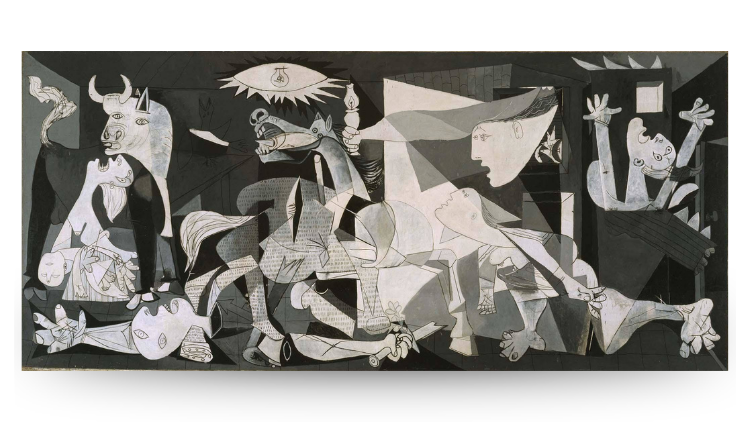Freedom
Liberal democracies and art

Today, creativity, expression and freedom are celebrated around the world on International's art day. Every year, on Leonardo Da'Vinci's birthday, we are reminded of how intercultural connections are in constant transformation and keep on flourishing beyond borders, deepening the meaning of human expression and social interaction through art.
Since the rise of civilization, art has presented itself as an interactive (always evolving) ground with infinite elements capable of portraying the distinct visions of social dynamics. Therefore, to reflect on the important role of art on the day to day of humankind, is to recognize the political nature of art and, therefore, its use and rendition as a universal language for freedom.
Art, the precedent of diverse socio-political statements through time across different sociocultural groups, has grounded itself not only as an expression of beauty, but also as a powerful tool of protest, fixing the ground to allow the representation of the equal liberty of others. Then, to understand art in its implicit context of universal accessibility is to recognize the significance of its role in liberal democracies and how it permeates and expands freedom through the different forms of art.
Needless to say, art is a need for society, and its genuine development and expansion within human groups is certainly an indicator of the strength of modern democracies. The state support for cultural expression then becomes a window of alternatives to promote, empower, and protect freedom. In this case, art is not just symbolic, but actually turns into one of the means for the resignification of spaces and redefinition of identities. Art is one more element that gets us closer to the defense of human rights.
The celebration of all art forms remains as a register of humankind memory, and its continuation preserves the intersection of how art becomes not only a form of communication, but also advocacy, diversity and inclusion. Art is a never ending documentation of all social issues that demand attention; for example the environmental crisis, human mobility, justice, gender inequality and many other topics that remain under discussion. But still, art also becomes a forum of conversation for such topics, turning into a significant element of representation and facilitator to open larger debates. In this sense, art is not only a reflection of the communities´state of wellbeing (or lack of), but also the scenario that brings opposing ideas, converges alternatives and opens possibilities of change and transformation.
Clearly, there is a close relation between art and freedom rights, showcasing the degree of functional democracies and how they interact and permeate people's life. Art is to be understood as the virtue of human expression, capable of capturing temporalities of social confrontation and agreement, opposition and harmony, resistance and acceptance; always emerging within the condition of duality. Then, the opportunities that art creates are immense and complementary to all political life, integrating social movements, activism and the protection of human rights in liberal democracies.
Art is not only about arbitrary interpretations, but an accurate outline of immediate reality through the people that conform it. Art brings society together and, liberalism, recognizing individual rights as one of its core principles, finds consensus on acknowledging art as a social practice widening the access to freedom.
Art questions freedom restrains, it resignifies collective resistance, repurposes public objects and objectives and demands cooperative reaction. Once again, the nature of art acquires its inherent meaning as an expression of political freedom, specially when liberal democracies are not constraining but manage to strengthen themselves through its people. Liberal democracies are open to new practices and therefore offer the spaces for their development. In this sense, democracies need art to reassure freedom and art acquires a specific degree of functionality when it is given the tools to develop and flourish in different scenarios.
Art, being a strong and genuine element of human behavior, under a well supported cultural system, turns capable of representing distinct socio-cultural realities. Liberal democracies acknowledge the diverse forms of autonomy and given this practice, art is able to take a relevant space, becoming a stage for public convergence. If art, then, makes us freer, one must reflect on its power as a tool to confront intolerance in the modern world and a necessary condition for politics transcending time and space.
